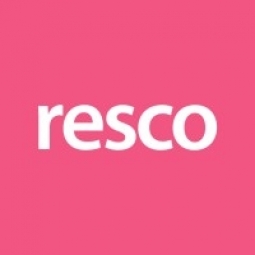Customer Company Size
SME
Region
- Europe
Country
- Greece
Product
- Resco Mobile CRM for Dynamics 365
- ACTIS ERP
Tech Stack
- Dynamics 365
- Resco Mobile CRM
Implementation Scale
- Enterprise-wide Deployment
Impact Metrics
- Productivity Improvements
- Cost Savings
Technology Category
- Functional Applications - Remote Monitoring & Control Systems
Applicable Functions
- Maintenance
- Field Services
Use Cases
- Remote Asset Management
- Predictive Maintenance
Services
- System Integration
- Software Design & Engineering Services
About The Customer
Alectris is a global service and software provider for the integrated care of renewable energy assets. Present in the mature solar markets in Europe, the USA, Southeast Asia, and the Middle East, Alectris, with its comprehensive suite of services & products, reduces the risk and delivers maximum financial returns for solar investors & plant owners regardless of site location. The company uses ACTIS ERP, its own proprietary renewable asset management and monitoring platform built on Dynamics 365 that helps it achieve its assets’ optimum performance, reducing internal and external costs, streamlining operations, and consolidating technical, operational, and financial data and reporting into a single place. Alectris selected Resco Mobile CRM as its mobility provider and acted as an implementation partner.
The Challenge
Alectris’ field engineers and technicians work remotely and are often out in the field. Their activities are typically in the area of preventative and corrective maintenance. The company’s aim was to provide field workers with a single solution to manage their work, including maintenance and other recurring activities, and report to the back office. Before implementing Resco, communication, reporting, and other information transmission was mainly done via phone calls and emails, which can be very time-consuming and inefficient. However, extensive reporting is required, so field workers must reserve a lot of time for desk work, making them unavailable for essential and urgent activities in the field. Another consideration is that the company has a global presence, and reliable and fast information exchange can be complicated. Synchronization times are long, and it can take time for the information to reach the customer.
The Solution
Before choosing Resco, Alectris conducted extensive market research. It soon found out that Resco is the most flexible solution with extensive customization possibilities and quick synchronization. The company started using Resco because it wanted to save time and streamline its reporting process. It implemented Resco as the primary tool for coordination and reporting between field workers and the back office, assigning daily work orders for each field worker. When assigning them, the back office considers the worker’s priorities, driving distances, and skillsets. Field workers then use the Resco app to report activities in the field and attach pictures to their reports. Upon synchronization with the server, the report is generated immediately and sent to the customer without delay. On top of that, the back office also has real-time oversight of each field worker’s exact location and current activity. Thanks to that, they can dispatch the correct person in case a potential issue arises during the day. Alectris also created a customized expense reporting system that allows field engineers to take a picture of the receipt or invoice and add it to their expenses. That allows for information to be readily available for the back office and reduces the time it takes to generate monthly expense reports to a few minutes. The solution is highly customizable and can be seamlessly integrated with Dynamics 365. That is a considerable advantage for Alectris, as they mostly use custom entities in Dynamics 365. The company did a lot of customizations and added a few additional functionalities that are not present in Resco’s core product.
Operational Impact
Quantitative Benefit

Case Study missing?
Start adding your own!
Register with your work email and create a new case study profile for your business.
Related Case Studies.

Case Study
Remote Monitoring & Predictive Maintenance App for a Solar Energy System
The maintenance & tracking of various modules was an overhead for the customer due to the huge labor costs involved. Being an advanced solar solutions provider, they wanted to ensure early detection of issues and provide the best-in-class customer experience. Hence they wanted to automate the whole process.
.png)
Case Study
Improving Vending Machine Profitability with the Internet of Things (IoT)
The vending industry is undergoing a sea change, taking advantage of new technologies to go beyond just delivering snacks to creating a new retail location. Intelligent vending machines can be found in many public locations as well as company facilities, selling different types of goods and services, including even computer accessories, gold bars, tickets, and office supplies. With increasing sophistication, they may also provide time- and location-based data pertaining to sales, inventory, and customer preferences. But at the end of the day, vending machine operators know greater profitability is driven by higher sales and lower operating costs.

Case Study
Predictive Maintenance for Industrial Chillers
For global leaders in the industrial chiller manufacturing, reliability of the entire production process is of the utmost importance. Chillers are refrigeration systems that produce ice water to provide cooling for a process or industrial application. One of those leaders sought a way to respond to asset performance issues, even before they occur. The intelligence to guarantee maximum reliability of cooling devices is embedded (pre-alarming). A pre-alarming phase means that the cooling device still works, but symptoms may appear, telling manufacturers that a failure is likely to occur in the near future. Chillers who are not internet connected at that moment, provide little insight in this pre-alarming phase.

Case Study
Remote Wellhead Monitoring
Each wellhead was equipped with various sensors and meters that needed to be monitored and controlled from a central HMI, often miles away from the assets in the field. Redundant solar and wind generators were installed at each wellhead to support the electrical needs of the pumpstations, temperature meters, cameras, and cellular modules. In addition to asset management and remote control capabilities, data logging for remote surveillance and alarm notifications was a key demand from the customer. Terra Ferma’s solution needed to be power efficient, reliable, and capable of supporting high-bandwidth data-feeds. They needed a multi-link cellular connection to a central server that sustained reliable and redundant monitoring and control of flow meters, temperature sensors, power supply, and event-logging; including video and image files. This open-standard network needed to interface with the existing SCADA and proprietary network management software.









